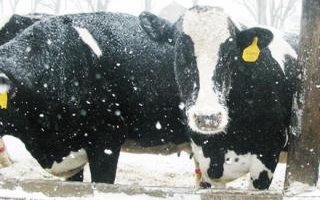 . Department of Agriculture (USDA) has awarded $19.5 million for research focusing on the impacts of climate change and weather variability on dairy and beef cattle.
. Department of Agriculture (USDA) has awarded $19.5 million for research focusing on the impacts of climate change and weather variability on dairy and beef cattle. “We have seen the impact that variable climate patterns have had on production agriculture for the past several years. These projects will deliver the best tools available to accurately measure and respond to the effects of climate on beef and dairy production,” Agriculture Secretary Tom Vilsack said in a statement.
The University of Wisconsin received $9.9 million to study the environmental impact of dairy production systems and develop farm-level management practices.
"The project’s ultimate goal is to increase the resiliency of dairy production systems while reducing greenhouse gas emissions, USDA said.
Other partners in the dairy project include the University of Arkansas, Cornell University, the University of Michigan, North Carolina A&T University, Pennsylvania State University and the University of Washington, along with four USDA Agricultural Research Service laboratories, the U.S. Department of Energy and the industry-sponsored Innovation Center for U.S. Dairy.
Beef research will go to a team led by Oklahoma State University, which received $9.6 million to study "the vulnerability and resilience of Southern Great Plains beef in an environment of increased climate variability, dynamic land-use and fluctuating markets."
Goal of the work is "to safeguard regional beef production while mitigating the environmental footprint of agriculture.
"The project also includes education and Extension components to train the next generation of producers and researchers in addressing the impact of climate on beef cattle," USDA said.
The beef team includes 32 scientists from OKlahoma State, Kansas State University, the University of Oklahoma, Tarleton State University, the Samuel R. Noble Foundation, and two USDA-ARS laboratories.







